第40章 I. MOTHER ROUQUIN(1)
Aegidius Aucupis, the Erasmus of the Penguins, was not mistaken; his age was an age of free inquiry. But that great man mistook the elegances of the humanists for softness of manners, and he did not foresee the effects that the awaking of intelligence would have amongst the Penguins. It brought about the religious Reformation; Catholics massacred Protestants and Protestants massacred Catholics. Such were the first results of liberty of thought. The Catholics prevailed in Penguinia. But the spirit of inquiry had penetrated among them without their knowing it. They joined reason to faith, and claimed that religion had been divested of the superstitious practices that dishonoured it, just as in later days the booths that the cobblers, hucksters, and dealers in old clothes had built against the walls of the cathedrals were cleared away. The word, legend, which at first indicated what the faithful ought to read, soon suggested the idea of pious fables and childish tales.
The saints had to suffer from this state of mind. An obscure canon called Princeteau, a very austere and crabbed man, designated so great a number of them as not worthy of having their days observed, that he was surnamed the exposer of the saints. He did not think, for instance, that if St. Margaret's prayer were applied as a poultice to a woman in travail that the pains of childbirth would be softened.
Even the venerable patron saint of Penguinia did not escape his rigid criticism. This is what he says of her in his "Antiquities of Alca":
"Nothing is more uncertain than the history, or even the existence, of St.
Orberosia. An ancient anonymous annalist, a monk of Dombes, relates that a woman called Orberosia was possessed by the devil in a cavern where, even down to his own days, the little boys and girls of the village used to play at a sort of game representing the devil and the fair Orberosia. He adds that this woman became the concubine of a horrible dragon, who ravaged the country. Such a statement is hardly credible, but the history of Orberosia, as it has since been related, seems hardly more worthy of belief. The life of that saint by the Abbot Simplicissimus is three hundred years later than the pretended events which it relates and that author shows himself excessively credulous and devoid of all critical faculty."
Suspicion attacked even the supernatural origin of the Penguins. The historian Ovidius Capito went so far as to deny the miracle of their transformation. He thus begins his "Annals of Penguinia":
"A dense obscurity envelopes this history, and it would be no exaggeration to say that it is a tissue of puerile fables and popular tales. The Penguins claim that they are descended from birds who were baptized by St. Mael and whom God changed into men at the intercession of that glorious apostle. They hold that, situated at first in the frozen ocean, their island, floating like Delos, was brought to anchor in these heaven-favoured seas, of which it is to-day the queen. I conclude that this myth is a reminiscence of the ancient migrations of the Penguins."
In the following century, which was that of the philosophers, scepticism became still more acute. No further evidence of it is needed than the following celebrated passage from the "Moral Essay":
"Arriving we know not from whence (for indeed their origins are not very clear), and successively invaded and conquered by four or five peoples from the north, south, east, and west, miscegenated, interbred, amalgamated, and commingled, the Penguins boast of the purity of their race, and with justice, for they have become a pure race. This mixture of all mankind, red, black, yellow, and white, round-headed and long-headed, as formed in the course of ages a fairly homogeneous human family, and one which is recognisable by certain features due to a community of life and customs.
"This idea that they belong to the best race in the world, and that they are its finest family, inspires them with noble pride, indomitable courage, and a hatred for the human race.
"The life of a people is but a succession of miseries, crimes, and follies.
This is true of the Penguin nation, as of all other nations. Save for this exception its history is admirable from beginning to end."